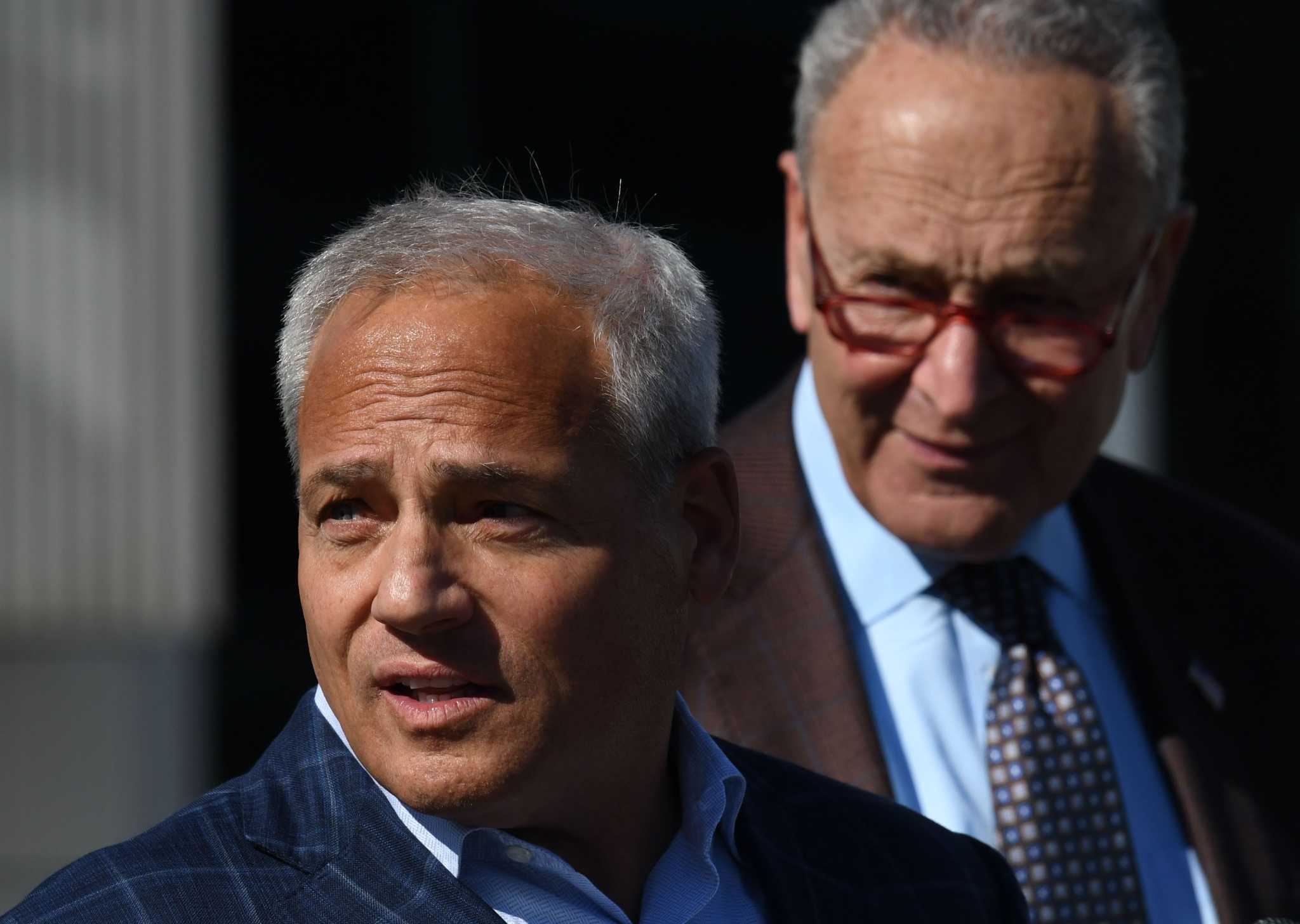Federal chip fab subsidies would bar companies from building factories in China for 10 years


MALTA – Computer chip makers who receive federal tax incentives provided under the CHIPS and Science Act to build new factories in the United States would have to begin construction by the end of 2026, and would be barred from building new factories in China for 10 years, according to proposed regulations released last week.
The CHIPS Act as it is informally known is a $52 billion incentive program passed last year by Congress at the urging of U.S. Senate Majority Leader Charles Schumer of New York, who has hailed it as a boon to upstate chipmakers like GlobalFoundries and Micron, which is planning a $100 billion chip fab complex outside of Syracuse.
The legislation sets aside nearly $40 billion in grants for chipmakers to build new factories in the U.S. or expand existing facilities here as a way to counter the growing influence of China’s chip industry, which has been grabbing market share from the U.S. for decades amid growing political and military tensions between the two nuclear superpowers. Another $75 billion would be available in the form of federal loans and loan guarantees.
Companies that participate in the CHIPS program will also be eligible for a 25 percent investment tax credit on construction and purchasing manufacturing equipment. A typical chip fab can cost between $5 billion and $10 billion to build, so the potential tax credits that companies could earn are substantial.
“Without the ITC and other historic incentives I created in my CHIPS and Science Act, major investments like Micron’s in Central New York would have gone overseas,” Schumer said in a statement.
The most pressing concern is if China were to invade the self-governing island of Taiwan, which China claims as its own. Taiwan is home to Taiwan Semiconductor Manufacturing Co., which is the world’s largest contract maker of advanced computer chips supplied to companies like Apple. If China were to invade Taiwan, it would not only gain access to TSMC’s cutting-edge technology but also take control of the world’s advanced chip supply.
Rules proposed by the Treasury and Commerce departments include requirements that companies that receive benefits would be barred from building new factories in China for 10 years and would require that construction on the new or expanded facilities begin by the end of 2026 to be eligible for the tax credits. There will be a 60-day comment period ending in May before the new rules are made official. Companies from China would also be banned from participating in the program.
The proposed rules estimate that the average grant award would be equal to between 5 percent and 15 percent of a project’s cost. For a $10 billion fab, that would come to $1.5 billion. Awards in excess of $3 billion for individual projects would only be given in special circumstances related to national and economic security. The conditions of the direct grants does not appear to have a specific deadline to start construction.
GlobalFoundries is expected to use the program to expand its current factory in Saratoga County and is looking at building a second factory, or fab, as well that could also be built using CHIPS Act incentives, although GlobalFoundries has yet to say when construction on that second facility would begin. GlobalFoundries makes chips used by the auto industry, the U.S. military and also critical infrastructure that is vital to U.S. interests.
“We are reviewing the new regulations issued last week, and will of course comply with the requirements,” GlobalFoundries spokesman Michael Mullaney said. “The guardrails are designed to keep to the CHIPS investments in the U.S. to support U.S. manufacturing and (research and development), and we fully support this approach.”



